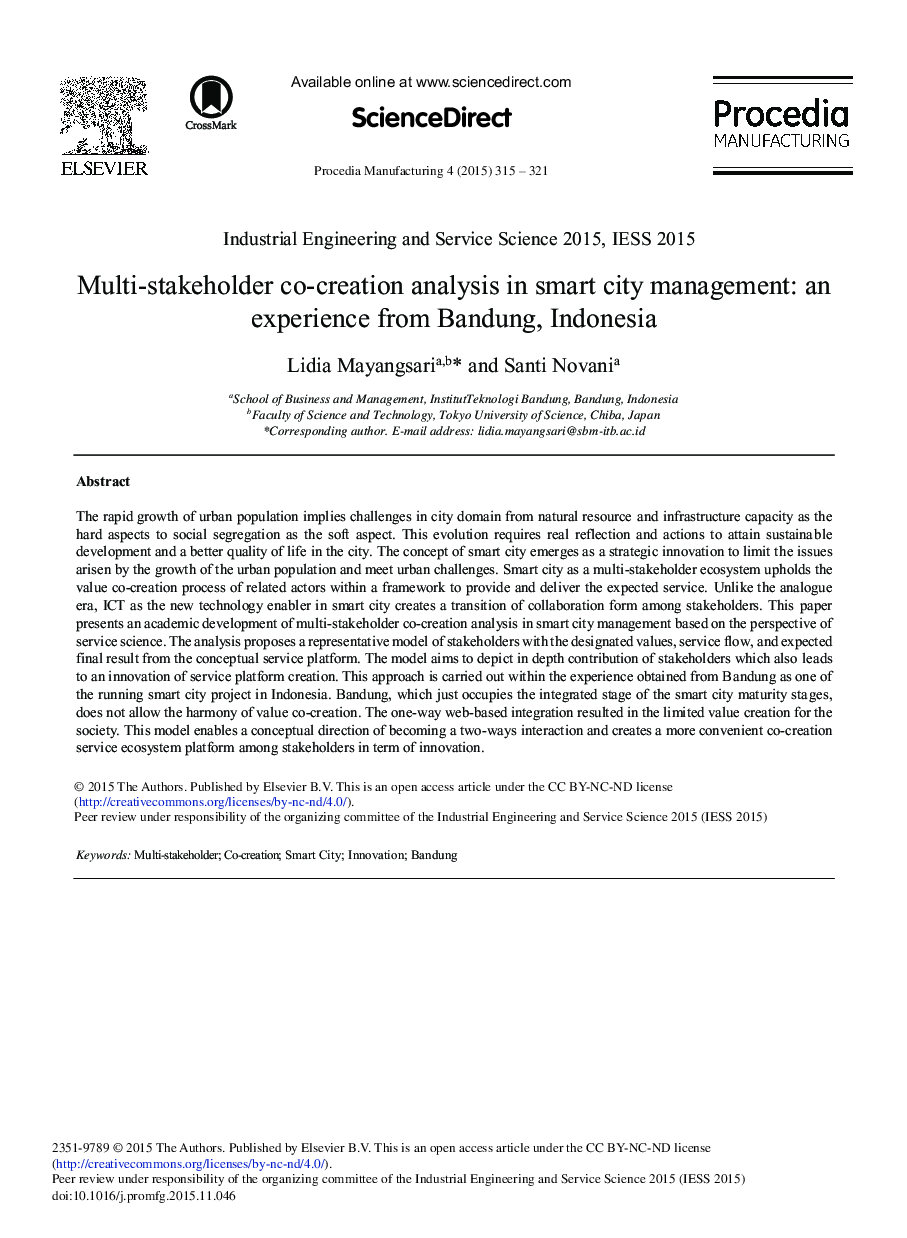| Article ID | Journal | Published Year | Pages | File Type |
|---|---|---|---|---|
| 1143538 | Procedia Manufacturing | 2015 | 7 Pages |
The rapid growth of urban population implies challenges in city domain from natural resource and infrastructure capacity as the hard aspects to social segregation as the soft aspect. This evolution requires real reflection and actions to attain sustainable development and a better quality of life in the city. The concept of smart city emerges as a strategic innovation to limit the issues arisen by the growth of the urban population and meet urban challenges. Smart city as a multi-stakeholder ecosystem upholds the value co-creation process of related actors within a framework to provide and deliver the expected service. Unlike the analogue era, ICT as the new technology enabler in smart city creates a transition of collaboration form among stakeholders. This paper presents an academic development of multi-stakeholder co-creation analysis in smart city management based on the perspective of service science. The analysis proposes a representative model of stakeholders with the designated values, service flow, and expected final result from the conceptual service platform. The model aims to depict in depth contribution of stakeholders which also leads to an innovation of service platform creation. This approach is carried out within the experience obtained from Bandung as one of the running smart city project in Indonesia. Bandung, which just occupies the integrated stage of the smart city maturity stages, does not allow the harmony of value co-creation. The one-way web-based integration resulted in the limited value creation for the society. This model enables a conceptual direction of becoming a two-ways interaction and creates a more convenient co-creation service ecosystem platform among stakeholders in term of innovation.
